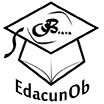Strategy for the educational inclusion of students with intellectual disabilities in primary education
Keywords:
educational inclusion, inclusive conscience, intellectual disability.Abstract
One of the most recent challenges in primary education is to achieve a successful conduction in the process of educational inclusion of students with intellectual disabilities, an element that continues as an object of study and argument from pedagogy. Therefore, this article presents a strategy that favors the educational inclusion of students with intellectual disabilities at this level of education. It is structured in stages and moments within these. It was applied in the "Tony Alomá" elementary school in the province of Las Tunas, based on the influence of socializing agents as protagonists in the process of formation and education of all students. Favorable results were achieved in terms of the levels of inclusive awareness, participation, acceptance, sensitivity, learning and work preparation of students with these characteristics. The actions developed allowed transformations in teachers, specialists, family members, community members and especially in the attitude of people towards learners with intellectual disabilities. The fundamental research methods used for this study were historical and logical, analysis and critique of sources, systemic approach, participant observation and the study of the products of the pedagogical process.
Downloads
References
Akudovich, S. (2013). Las ciencias de la Educación como fundamentos teóricos de la inclusión educativa. (Material digital presentado en formato Power Point).
Arnaiz, P. y LOZANO, J. (1996). Proyecto curricular para la diversidad. Madrid. CCS. [Material digital]
Bell, R. (2008). Educación. Exclusión. La Habana: Editorial Pueblo y Educación.
Booth, T. (2002). Inclusion and exclusion in the city: concepts and context. En Potss, P. y Booth, T. (Eds). Inclusion in the city. Londres. Routledge.
Bunch, G. (2015). Un análisis del movimiento de la Educación Inclusiva en Canadá: Cómo trabajar. Revista Electrónica Interuniversitaria de Formación del Profesorado, 18 (1).1-15.
Chávez, N. (2017). La formación inicial del licenciado en Educación Primaria para la atención educativa integral a los educandos con retardo en el desarrollo psíquico. (Tesis doctoral), Holguín, Cuba.
Cobas, C. (2008). Las adaptaciones curriculares y la igualdad de oportunidades en la escuela. La Habana: Editorial Pueblo y Educación.
Constitución de la República de Cuba (2019). Título V Capítulo I. Artículos 40- 42, 44 y 51 p. 15 y 16. La Habana: Editorial Política.
Devalle, A. y Vega, V. (1999). Una escuela en y para la diversidad. En Revista “Aula hoy” No 17.
Echeita, G. (2013) Inclusión y exclusión Educativa. De Nuevo1 “Voz y Quebranto” 2. Revista Iberoamericana sobre Calidad, Eficacia y Cambio en Educación-Volumen11, Número2 Hhttp://www.rinace.net/reice/numeros/arts/vol11num2/art5.pdf.
Gayle, A. (2005). Una concepción pedagógica para el tránsito de los alumnos de las escuelas de retardo en el desarrollo psíquico a la educación básica. (Tesis doctoral). La Habana: CDIP, Cuba.
Giné, C. (2009). La educación inclusiva. De la exclusión a la plena participación de todo el alumnado. Barcelona: Editorial Horsori.
Leyva, M. y Barreda, M. (2017). Precisiones para la atención educativa a educandos primarios con necesidades educativas especiales asociadas, o no, a discapacidades. La Habana: Editorial Pueblo y Educación.
López, D. (2015). Inclusión de Personas con Discapacidad Intelectual en Escuelas de Adultos. (Tesis doctoral). Universidad de Salamanca.
López, Y. (2016). Comunicación Social desde los contextos de encierro. La libertad de la mano de la educación. Actas de Periodismo y Comunicación, Vol. 2, N.º 1, diciembre 2016 ISSN 2469-0910 http://perio.unlp.edu.ar/ojs/index.php/actas FP y CS, Universidad Nacional de La Plata. Buenos Aires. Argentina.







.png)



.png)



.png)





















